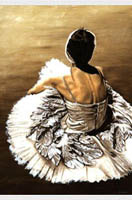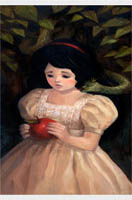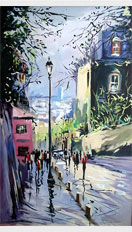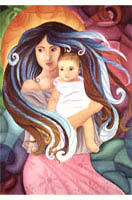Oil painting -> List of Painters ->Claes Oldenburg
Claes Oldenburg
 |
Early Days: |
Career:
While further developing his craft, he worked as a reporter at the City News Bureau of Chicago. He also opened his own studio and, in 1953, became a naturalized citizen of the United States. His first recorded sales of artworks were at the 57th Street Art Fair in Chicago, where he sold 5 items for a total price of $25. He moved back to New York City in 1956. There he met a number of artists, including Jim Dine, Red Grooms, and Allan Kaprow, who’s Happenings incorporated theatrical aspects and provided an alternative to the abstract expressionism that had come to dominate much of the art scene.
The most memorable aspects of Oldenburg's works are perhaps, the colossal sculptures that he has made. Sculptures, though quite large, often have interactive capabilities. One such interactive early sculpture was a soft sculpture of a tube of lipstick which would deflate unless a participant re-pumped air into it. In 1974, this sculpture, Lipstick (Ascending) on Caterpillar Tracks, was redesigned in a sturdier aluminum form, the giant lipstick being placed vertically atop tank treads. Originally installed in Beinecke Plaza at Yale, it now resides in the Morse College courtyard.
|
Many of Oldenburg's giant sculptures of mundane objects elicited public ridicule before being embraced as whimsical, insightful, and fun additions to public outdoor art. In the 1960s he became associated with the Pop Art movement and attended many so-called happenings, which were performance art related productions of that time. The name he gave to his own productions was "Ray Gun Theatre". His first wife - (1960–1970) Pat Muschinski who sewed many of his early soft sculptures, was a constant performer in his happenings. This brash, often humorous approach to art was at great odds with the prevailing sensibility that, by its nature, art dealt with "profound" expressions or ideas. But Oldenburg's spirited art found first a niche then a great popularity that endures to this day.








